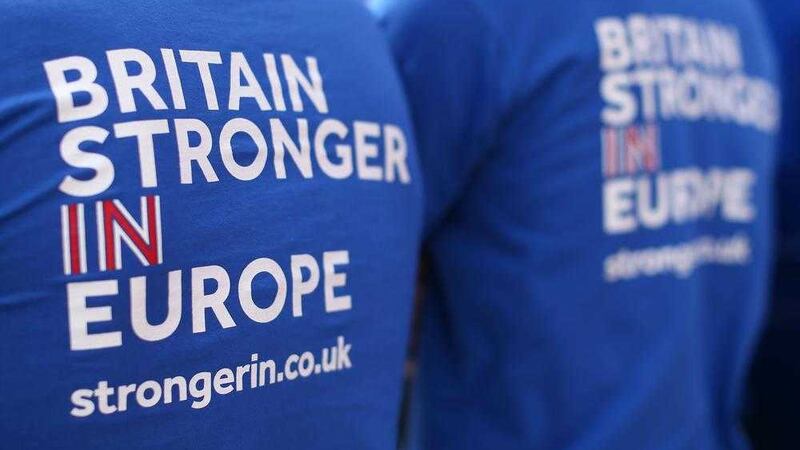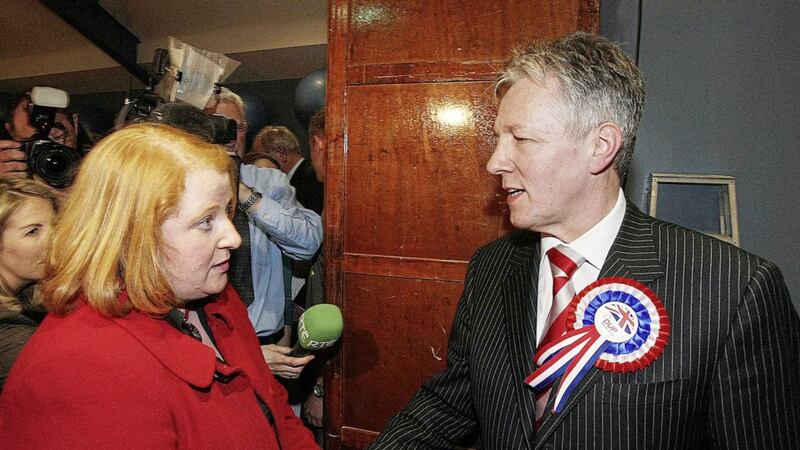THE leaders of the campaign for Britain to remain within the European Union have got it wrong. Their decision to promote a message of fear through big names in politics and business has driven increasing numbers into the Leave camp.
As a result, they have avoided addressing a residual distrust of the EU and failed to recognise that the growing Leave vote is also a reflection of a wider western disenchantment with establishment politics.
As economic inequality continues to rise, support for the Leave campaign is as much anti-establishment, as anti-EU. In the US, this wider trend is reflected in right wing support for Trump and left wing votes for Sanders. Poland has a right wing government and Spaniards are likely to elect a socialist administration next week.
In the south, anti-establishment politics have denied both largest parties an overall Dáil majority. Even in the sectarian north, People Before Profit has gained seats at the expense of the social democracy of Sinn Féin and the SDLP.
David Cameron picked the wrong point in history to hold his referendum. (Now, who needs history graduates?) This week he was effectively dumped as Remain leader, but it may be too late to save his cause or his career.
Among those selected to preach fear were present and former politicians, economic "experts" (who failed to predict the 2008 global recession) and business leaders, whose opinions Mr Cameron believes we should heed because they are rich.
Their message is that if we do not support the established order, life will be much worse. But for millions in the UK, life cannot get much worse. Declining unemployment masks the fact that, for example, almost four and a half million people in England and Wales are in insecure employment: 2.3 million work variable shift patterns; a further 1.1 million are on temporary contracts and 800,000 are on zero-hours contracts. (Don't forget, folks, the EU protects workers' rights.)
Try telling those 4.5 million workers that life outside the EU would be worse. Fear works only against those with something to lose. There is little for the majority to fear in Britain, where the richest one per cent owns the same as the poorest 55 per cent and one million people rely on food banks.
What could be worse than the behaviour of Philip Green, whose financial engineering deprived 11,000 BHS workers of a job and left 22,000 members of its pension scheme having a poorer retirement.
His was not an isolated example. It is reported that in the 1970s, £10 of every £100 in business profits went to shareholders. Today it is between £60 and £70. Tony Blair knighted Philip Green. David Cameron made him an adviser. Therein lies the inherent weakness in the Remain campaign.
Instead of fear, it should have offered hope. But hope is in short supply in the EU. Half of those under 25 are unemployed in Spain and Greece, because EU economic policy on austerity requires member states to have annually balanced budgets, despite the recession and each country's varying economic conditions. (The UK did not sign up to this policy. It introduced its own cuts.)
The EU is led by Jean-Claude Juncker, formerly head of Luxembourg, Europe's biggest tax haven. President of the European Council is Donald Tusk, former right-wing Polish prime minister. (Tusk said this week that Brexit would cause the destruction of "western political civilisation in its entirety." Now that's how to spread fear - or maybe just hilarity.)
Mario Dragi, formerly head of Goldman Sachs, runs the European Central Bank. Who among those three will offer hope for Europe's poor and unemployed?
The exception to this anti-establishment trend is nationalist Ireland. Nationalism's cyclical meandering from subversion to subservience is currently going through a period of allegiance to authority. Since 1798 nationalism has largely ignored social and economic issues, so the laws of political upheaval tend to pass us by.
Meanwhile, EU leaders are locked in secret discussions with the US over the Transatlantic Trade and Investment Partnership. Some suggest this will seek to make all public service, including the NHS, available to corporate America and allow companies to sue governments if national policies cause a loss of company profit.
So where is the hope in the EU's future plans?
Perhaps then it is a mistake to say the Remain leaders ran the wrong campaign. In the circumstances, it may have been the only campaign which they could have run. Either way, they have until Thursday to devise a better one.









